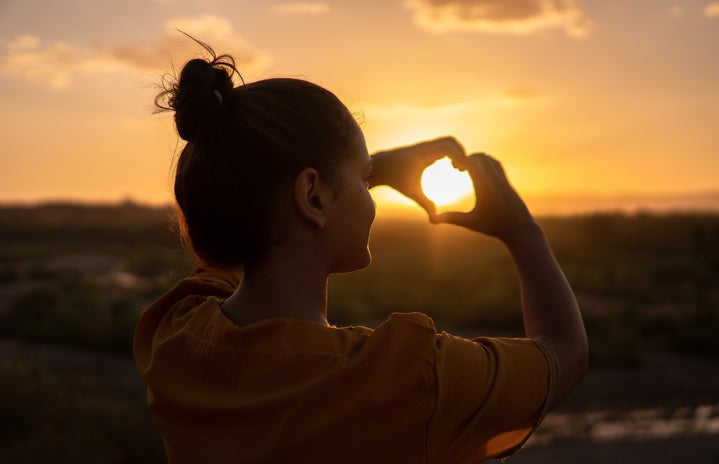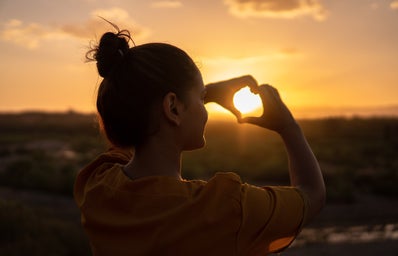It’s a tale as old as time. Two people meet, they fall in love and live happily ever after (though what ‘happily ever after’ actually means is never really depicted past the end credits). We’re fed this narrative from when we’re literal children and this narrative then manifests itself in the media we consume, through celebrity culture, the tv we watch whether actively or passively, the songs playing on the radio or on our phones and even the relentless ads we’re exposed to on the daily.
The question is, can those of us who are yet to properly experience this apparent fairytale-esque feeling or have been let down romantically ever catch a break. The lucky ones who are experiencing this feeling for the first time or for the fifteenth time and are happily coupled up just get sweet reminders of said love whenever they’re exposed to this narrative. But, for the rest of us it feels like a constant reminder of our single-dom, particularly if the narrative has also manifested in our friendships.
What I mean by this is the feeling of being the only single friend in your friendship group. The feeling of ‘is everyone else falling in love except for me?’. Which, truth be told, is an extremely exhausting and often isolating feeling to experience. Especially when this is combined with external reminders, like what’s depicted in the media and popular culture.
Though sometimes this feeling may feel difficult to deal with, particularly if you’re the only ‘single friend’, I’d like to show you that it’s actually not all doom and gloom and dispel misconceptions about being so.
Being single isn’t synonymous with being ‘unlovable’
Starting on a bit of a serious note here. Because we’re often led to believe that romantic love is the be all and end all, we’re also led to believe that to be loved by someone is what fundamentally indicates that we are in fact lovable.
But here’s the thing, there really isn’t a connection between how lovable and likeable you are as a person and having someone love you. I mean, I’ll be frank here, it is a pretty decent indicator that you are loveable but it’s not the only or even the most important indicator of your value and your worth.
A lot of how loveable you feel has to do with how you feel internally. Honestly, if you’re feeling ‘unlovable’ then having a romantic partner won’t actually change that feeling long-term. I think a decent indicator that you are in fact lovable is that you have friends and family members who love you. Whether you have an abundance of these relationships or whether you have a select few quality relationships, they show that you have likeable characteristics and qualities. You have value. And you are loveable. People want to be around you.
Again, this isn’t a definitive indicator. I think a way of feeling truly loveable is to feel that yourself. There must be qualities you like about yourself. Qualities which are original and unique to you. And if you’re in a position where this is feeling difficult to see, you have the best starting point to self-improve. You are in the best position to work on yourself and set personal goals to feel more loveable to yourself.
It sounds cliché, and I’m definitely guilty of forgetting this myself, but feeling loveable starts with your own perception of yourself. Just because society may have you believe that having a romantic partner is indicative of your worth and value, doesn’t necessarily mean its right. You add so much, so much that you may not even be aware of, to the lives of those around you. And you are loveable, no matter whether there’s elements of yourself you believe you can improve.
Having a romantic partner won’t be the way that the films portray it to be
Often if we’re single, we romanticise the idea of love. Or at least we romanticise the way pop culture and the media portrays love. I think this is where a lot of the apparent doom and gloom of being the ‘single friend’ comes from. We idealise the idea of relationships and because we see the positive elements of our friends’ romantic relationships, we create this rose-tinted notion of love being the greatest thing, or one of the greatest things, we can experience.
Love in real life is gritty, complicated and has various ups and downs which go unnoticed by most of the film, literature, popular culture and media we consume. We might romanticise love, especially if we’re the only single one in our friendship group, but a lot of this has to do with projecting an idealised notion onto something which in actuality is far more complex than we may initially think it is.
You will be happy when you’re in love, just as you will feel every other emotion equally while you are in love. You will be sad. You will be angry. You will be anxious. All in the same way you feel these emotions while you are single. Being in a relationship won’t drastically improve your life and the emotions you feel and it certainly won’t magically improve how you handle them. How you process and react and handle your emotions comes from, again, yourself first.
Love won’t be the way the films make us believe it will. It will add magic and happiness to our lives, or at least it should. But it will also, just as any relationship we have in our lives does, challenge us and expose us to complex situations and feelings which often won’t look exactly like they do on the screen.
What I’m trying to say is that when you’re single, and when you’re the ‘single friend’ you might feel like idealising and manifesting a kind of love which the movies will have you believe is real. But this pressure and romanticism placed on love only makes it more difficult to find, at least in its most authentic form. There’s no definite timeline for love and there’s no deadline. You don’t have to take the conventional approach to love and you certainly don’t need to place such an emphasis on the role romantic love should have in your life.
Just because you’re the ‘single friend’ doesn’t mean this has to define you as a person. There’s so much good to enjoy in life and so much purpose you can find in life which has nothing to do with romance or having a romantic partner. There’s no need to feel at a loss for not having this in your life currently. You’re on your own life journey and you don’t have to live your life on the people around you’s timeline. There’s no need to feel bad about not having found what you’re looking for yet and there’s no need to take the doom and gloom approach to being the ‘single friend’.


